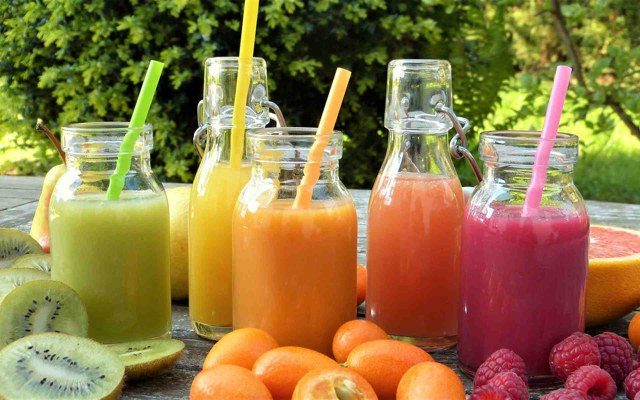The drinks have as much weight on the diet such as meat or vegetables, but not all have the same value. For a healthy diet know the weight of drinks.
Water
Drink a glass of water every time when you feel even slightly thirsty. Water adds no calories. So, consume water in abundance (two liters or more a day) at any age and not just in the days of greatest heat.
Nevertheless, we often try to quench our thirst for water by drinks that are more tempting to taste, particularly soft, usually rich in sugar.
Soymilk
Soymilk is obtained from the soybean, which is rich in protein, has less fat than the milk and allows for easy digestion. Such drinks are usually rich in isoflavones (essential in the prevention of cardiovascular diseases and cancers) and free from cholesterol. However, taken in excess (more than four cups per day) can produce toxicity. They are especially recommended for people hypercholesterolemic lactose intolerant and women in pre menopause. Should be avoided by those with high uric acid, flatulence and intestinal diseases such as irritable bowel syndrome. Little caloric soy milk odorless has, on average, only 43 kcal/100 ml.
Natural juice
Fruit juices are rich in antioxidants and water. It is a practical way to consume fruit and vegetables on a daily basis as recommended by WHO. It contains many essential vitamins (A, C and E). Protects the immune system, prevents cancer, provides energy.
Milk
It is rich in calcium, phosphorus, animal protein and water. What distinguishes the different types of milk content of fat-soluble vitamins. It is the perfect combination of calcium and protein, essential in the process of absorption of calcium. The intake exceeding one liter daily, however, can cause kidney stones. The milk is recommended primarily for children, who should consume semi-skimmed milk. However, milk is not recommended for those suffering from lactose intolerance, irritable bowel syndrome and peptic ulcer. Very nutritious, semi-skimmed milk contains 52 kcal / 100 ml.
Fruit smoothies
They are a healthy option, low in calories and rich in supply of vitamins and minerals. They have the advantage of combining the benefits of milk and fruit. A banana smoothie made with skimmed milk, no sugar, contains 100 Kcal/100 ml.
Beer
Result of fermentation of cereals, especially malted barley, their consumption should be sporadic. The moderate ingestion, i.e., which cannot exceed a 33cl per day may be prophylactic against heart disease. The alcohol-free beer has the advantage of increasing insulin production. Causes, however, abdominal distension volume and enhances kidney stones. Avoid this drink in case of gastrointestinal disorders, kidney disease, gout and kidney stones. As regards the alcohol beer, generally contains 40 kcal/100 ml.
Wine
It is rich in beneficial properties for the heart, but their consumption should be moderate, not exceeding one to two small glasses a day. Red wine, in particular, is a source of tannin (antioxidants) are beneficial to the circulatory system. The white wine and the like, however, are rich in sugar and alcohol, showing no benefit.
Patients with circulatory disease can and should intake very small amounts of red wine. People with gout, arthritis and gastric ulcer should not consume it, either red or white. Red wine contains 65 kcal/100ml, while white wine contains 66 kcal/100 ml.
Juice concentrate
This type of drink, much appreciated by children, allows the rapid consumption of vitamins. Preservatives and chemical-free juice concentrate has a higher vitamin content and antioxidant. The juice concentrate artificial (industrial), however, contain many preservatives, unhealthy, and few vitamins. This type of juice should be consumed sporadically. Diabetic patients should avoid it for high sugar content. For example, know that the concentration of manga (artificial) on the market contains 135 kcal/100 ml.
